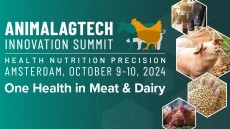Purina partners with Performance Livestock Analytics, offers real-time feed metrics

The partnership was announced Friday, August 11, and allows Purina Animal Nutrition’s beef producing customers to sign up for the analytic service, said the Missouri-based company. There is a fee attached to the program.
Producers would be able to share real-time data capture with their feed representative to receive nutritional recommendations, Purina said.
The analytic company provides software that can be used to automatically track data for a feedlot manager or beef producer, said Dane Kuper, CEO and co-Founder of Performance Livestock Analytics (PLA). Data is collected from multiple locations, stored in the cloud and accessible from a range of devices like other web-based services.
“It’s a complete business center for a feedlot,” he told FeedNavigator. “They can exchange information with the nutritionist, business manager or others who have real time insights to make.”
The system was designed to follow performance inputs like daily feed and performance information, costs for feed ingredients and track both feed delivery and when new orders need to be made, PLA said. It also should improve ease of feed formulation updates and offer insights on the data captured.
Market and partnership details
PLA started with the goal of applying some of the data tracking and metrics used in crop production to animal production, said Kuper.
The company also has ties to the accelerator program the Ag Startup Engine at Iowa State University Research Park, PLA reported.
The company is currently focusing on work with beef producers in the US and Canada, said Kuper. The system was designed to work with producers of varying sizes from smaller producers to those managing 30,000 to 50,000 cows.
However, looking forward, work with dairy producers is an expansion goal, he said. “For us that’s step two – step one is to optimize the workflow for the beef industry,” he added.
The Iowa-based analytical company was interested in working with Purina for several reasons including because of the company’s national presence and name recognition, he said.
Analytical focus
Previously, some feedlots used historical data to track cattle and make decisions like feed ingredient use or for production, said Kuper. The analytical program offers information about the production of current herds.
“When it’s processed in real time, it’s actionable – when it’s historical, it’s after the fact,” he said. Stakeholders in the production system should have the ability to use their information to make better choices potentially leading to improved profitability, he added.
The program captures several datasets generated in the production of cattle, including items like feed costs and amount consumed or refused, he said.
“A lot of times, when a nutritionist shows up, they ask, ‘How are the cattle doing?’ And with our system, they should never have to ask that question,” Kuper said. “They’ll be able to see this pen had a higher feed refusal, or a poor quality bunk, and you can see what was in the feed, what was delivered, how may pounds of what went into the bunk and how many pounds went into that feed.”
The information can highlight when a problem occurs, such as if too much corn has been added to a ration and is causing health issues for the cattle, he said.
Once the software is installed it automatically captures information sets and timestamps the process, he said.
“Our system does a good job of collecting the data in an automated way,” said Kuper. It also is designed to help producers make informed and profit driven decisions on areas like feed ingredients, he added.
“It’s a business management system, and we can help benchmark the data,” he said. “We help you understand areas where you could improve, or where you are doing well, or where you could be more efficient.”
Feedlot producers may focus on optimizing cattle performance, but the software also can help them focus on how to best meet their breakeven by considering factors in related areas and making informed business decisions, he said. “When you can replace intuitions with data you gain the advantage,” he added.


















